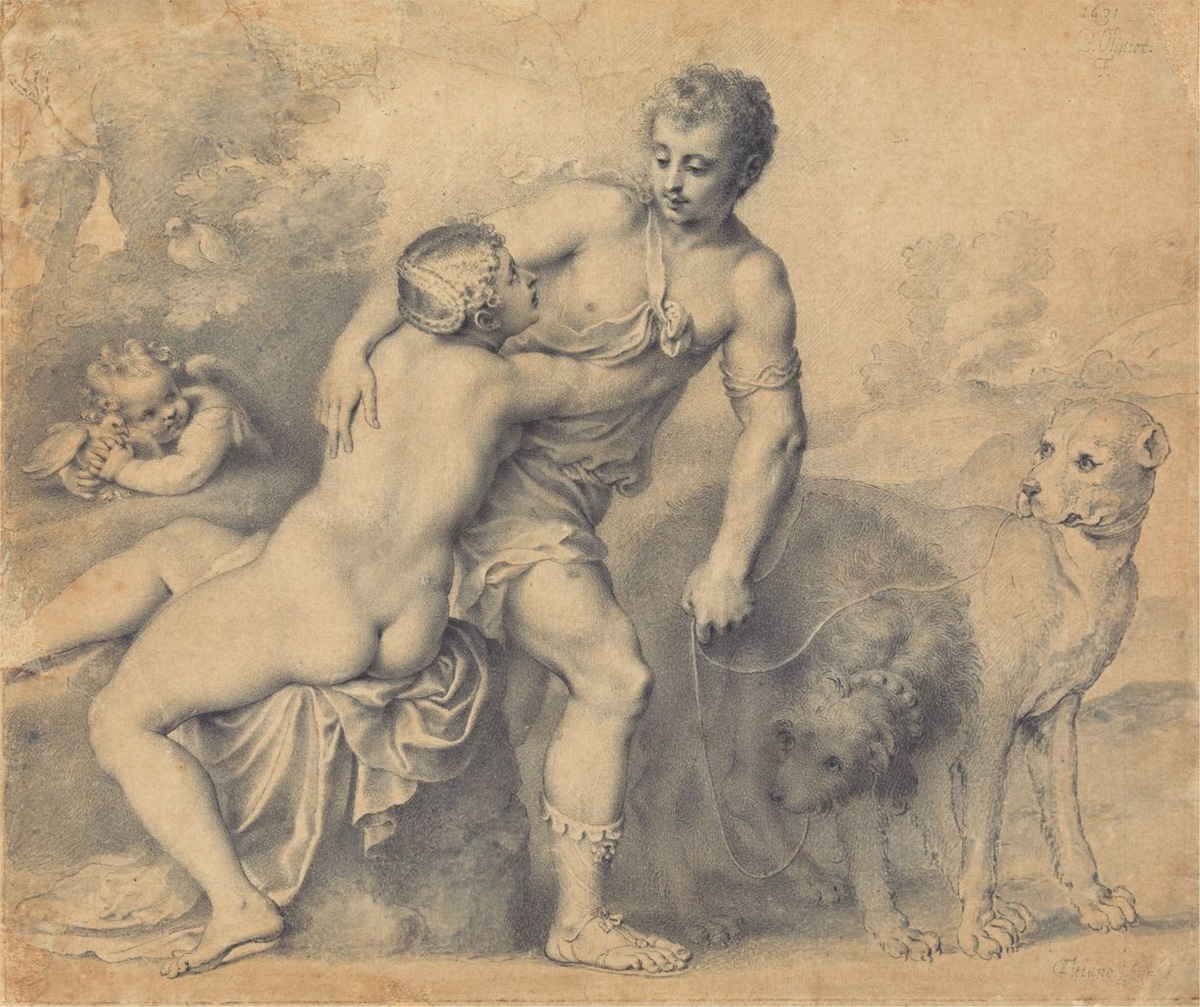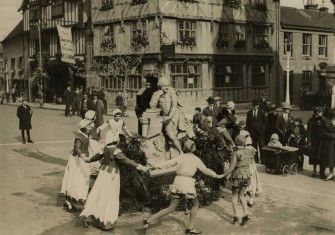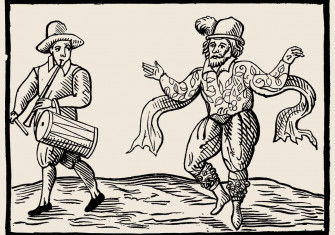‘Straight Acting’ by Will Tosh review
Bard romance? Straight Acting: The Many Queer Lives of William Shakespeare by Will Tosh sets the stage for the next wave of accessible queer histories.

Towards the end of Prospero’s Books, Peter Greenaway’s 1991 reimagining of The Tempest, John Gielgud moves through a shifting landscape of half-naked, androgynous bodies. Staring directly at the camera, he gravely intones his final speech as the scene behind him dissolves. Deliciously baroque, searingly self-aware and dripping in Elizabethan glamour, Greenaway’s film discovers a radical queerness hitherto hidden at the centre of the play.
Early modern studies is stuffed with path-breaking queer scholarship, and the work of Eve Kosofsky Sedgwick, Alan Bray and Valerie Traub among others has helped to illuminate the queerness in Shakespeare’s plays. Until now, though, very few books aimed at a wider audience have explored same-sex desire in the canon of England’s most famous dramatist. With Straight Acting Will Tosh, otherwise Head of Research at Shakespeare’s Globe, fills that void with sparkling aplomb.
In Tudor England same-sex desire was, on the surface at least, forbidden by the prohibitions of church and state. A government Act of 1533 punished the ‘detestable and abominable vice of buggery’; an afterlife of hellfire awaited such sinners on the other side, per the Book of Common Prayer. Yet, in the gaps between these ominous legal and religious decrees, we know that queerness flourished.
Straight Acting takes the reader on a whistlestop tour of several of these literal and conceptual spaces. In the classroom of Shakespeare’s grammar school in Stratford-upon-Avon, we’re told how students were, from an early age, exposed to the homoeroticism of Ovid’s verse. For Tosh, these racy Classical worlds offered queer fantasies to young Tudor minds (as they would to many later generations of queer people). Later, we travel to London with young Master William. It is here, at the heart of the capital’s theatre scene, that some of this fantasy may have spilled over into experience.
The life of an early modern creative was precarious: flitting between patrons, print shops and the playhouse, money was hard to find and a generation of would-be writers often lived and worked together to share the economic burden of life in London. Tosh colourfully depicts this intimate ecosystem of room-sharing and bed-swapping: the ‘belongings, books, and papers’ of Thomas Kyd and Christopher Marlowe are shuffled together as part of their shared life, and Francis Beaumont and John Fletcher are reported to have both lived and laid together. Shakespeare likely lived and worked cheek-by-jowl with his peers and, with ‘the boundary between sleeping chum and sexual partner’ inevitably porous, Tosh argues that such ‘everyday intimacies’ shared between men found voice in his work. The queer beauty of these everyday intimacies is poignantly articulated in Tosh’s reading of Twelfth Night (c.1602), where careful attention to the dramatic structure of Shakespeare’s play transforms Sebastian and Antonio’s comradely bromance into the ‘most overt depiction of a same-sex romantic couple’ in Shakespeare’s work.
Yet the most compelling evidence of what Tosh calls Shakespeare’s ‘fascination with queer male relationships’ is found in an analysis of his two narrative poems Venus and Adonis (1593) and Lucrece (1594). Tosh draws out the queerness of these earlier works by placing them alongside Thomas Peend’s The Pleasant Fable of Hermaphroditus (1592). Read as a ‘vigorous domination fantasy’ with a gorgeous male youth at its centre, Peend’s poem, alongside Scilla’s Metamorphosis by Thomas Lodge (1589) and Marlowe’s Hero and Leander (1598), was one of several Ovidian mini epics which caught the popular imagination with stories of ‘uncontrolled lust’ and beautiful boys. By viewing Shakespeare’s early verse in this context, Tosh reveals how Lucrece and Venus vibrate with queer motifs already at play in the literary terrain of Elizabethan England.
Tosh’s recontextualisation of Shakespeare’s sonnets is equally eye-opening. The innovations of young writers and the shifting tastes of the book-buying public meant that the literary mode du jour moved quickly in early modern England. In the 1590s the sonnet was chic. The ‘queer poetic sensibility’ of Richard Barnfield’s Certain Sonnets (1595) took Elizabethan England by storm, and Tosh interprets Shake-speares Sonnets (1609) as the endpoint of a decade-long dalliance with Barnfield’s work. Uncompromising in their ‘honesty and candour about sexual love between men’, Tosh draws parallels between Barnfield’s sonnet sequence and the implications of same-sex desire in Shakespeare’s Sonnet 20. Battered by GCSE syllabi and worn out in wedding speeches, the sonnets needed a glow-up; this inspired comparison recovers their homoeroticism.
In an age of restriction and surveillance, the queer spaces glimpsed in Tudor classrooms and the literary worlds of early modern London allowed a generation of restless and resistant artists to find their voice at the end of the 16th century. Straight Acting successfully inserts Shakespeare into this narrative. A queer quasi-biography of Shakespeare runs the risk of disappearing into the question of his sexuality. Tosh elegantly sidesteps this cul-de-sac by opting instead to focus on the queer resonances in Shakespeare’s world and work. This is a conjuring trick performed with a sleight of hand deft enough to make Prospero jealous, and it renders a familiar canon brilliantly strange.
It is true that some of Tosh’s early modern sources sometimes creak beneath the weight of language and concepts drawn from 21st-century queer culture. But, given the important aim of this bold and fearless book, the occasional anachronism should be written off as an occupational hazard. Taking another step towards uncovering a ‘hidden canon’ of queer desire, Straight Acting is a fitting tribute to a man who wrote for a future where ‘love may still shine bright’. Tosh’s book returns this future-focused favour, kicking open a door for the next wave of accessible queer histories.
-
Straight Acting: The Many Queer Lives of William Shakespeare
Will Tosh
Sceptre, 304pp, £22
Buy from bookshop.org (affiliate link)
Matt Ryan is a PhD researcher at Newcastle University, researching Elizabethan print culture.






